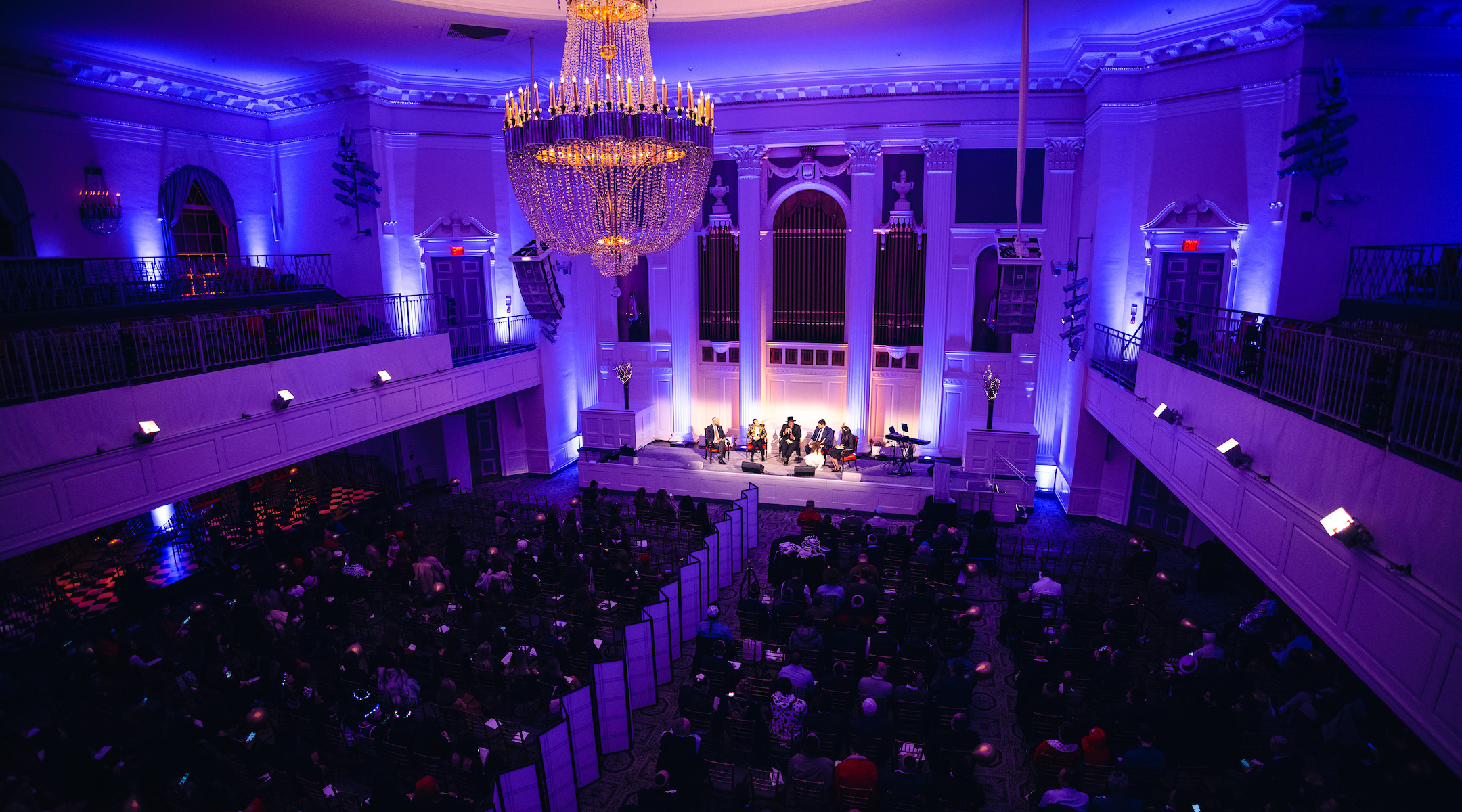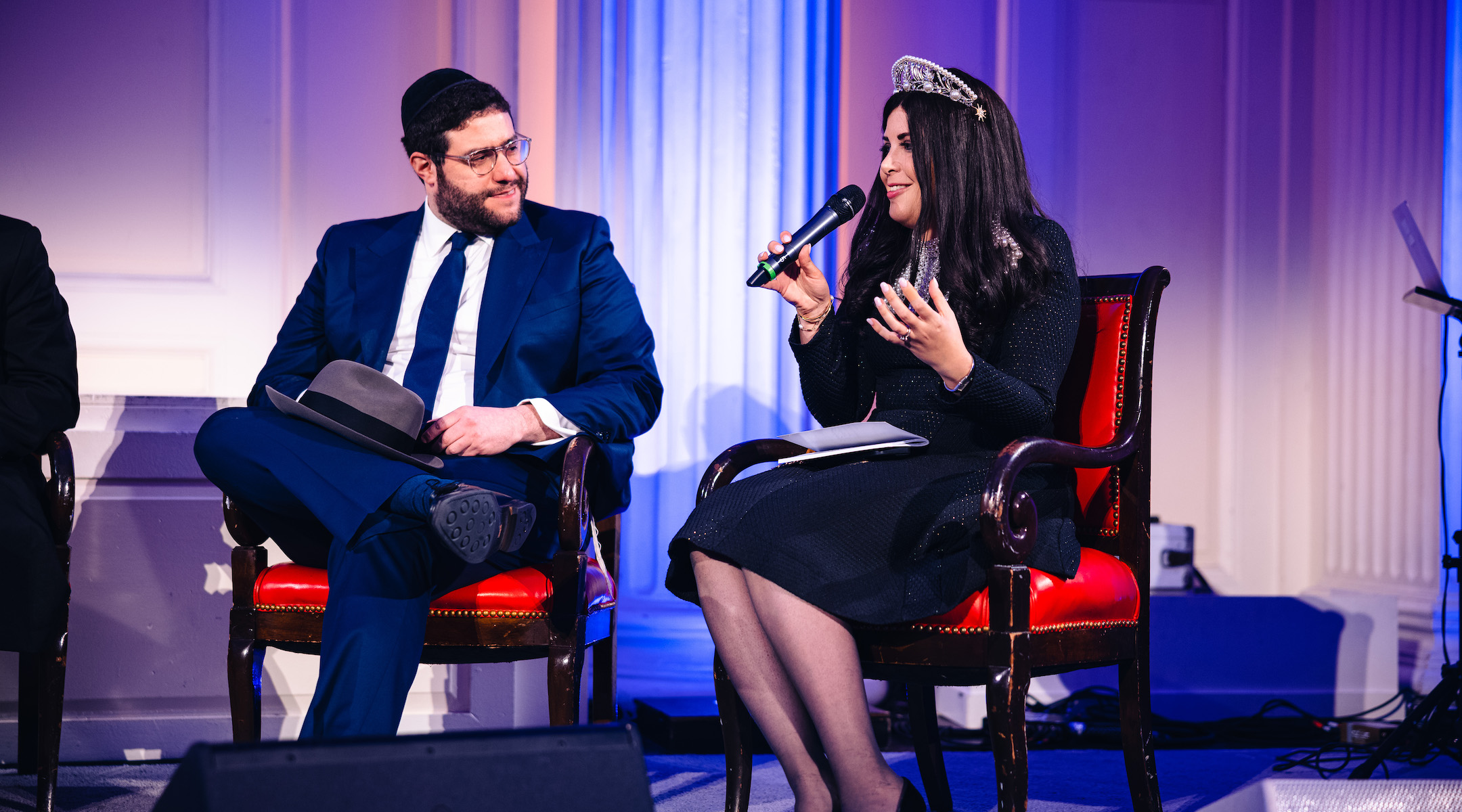(New York Jewish Week) — Since Hamas’ attack on Israel on Oct. 7, there has been an outpouring of fundraisers and activism from New York synagogues and Jewish institutions. Some shuls are holding fundraisers, others are packing medical kits, still more are writing letters to IDF soldiers.
But at one Upper East Side congregation, a new form of activism is emerging in response to the gruesome attack, ongoing war and rising antisemitism: matchmaking.
The Altneu Synagogue — the innovative, two-year-old Orthodox congregation on the Upper East Side that began after its rabbi, Benjamin Goldschmidt, was fired from Park East Synagogue — has launched a matchmaking initiative for singles in their congregation and their immediate friends.
According to Avital Chizhik-Goldschmidt, who founded the synagogue with her husband, making Jewish couples is one way to ensure a Jewish future at a time when so many are worried the idea is in danger.
“Everyone’s trying to figure out what to do from here,” Chizhik-Goldschmidt told the New York Jewish Week. “I felt very much that the best way to respond to darkness and death is to bring in more light and more love and to bring people joy. Traditionally, that is the Jewish response to catastrophe.”
On the evening of Nov. 11, the Altneu sent an email to their congregants announcing the matchmaking initiative; the Goldschmidts also spoke about it after services on Shabbat and posted it on their social media. “The reception has been amazing,” Chizhik-Goldschmidt said, adding that in less than two weeks, almost 200 people have signed up. About half are members of the Altneu.
Chizhik-Goldschmidt said that the idea for a matchmaking program had come up organically among several members over the last few months — interest in Jewish matchmaking was given a pop culture boost when Netflix released their hit series “Jewish Matchmaking” earlier this spring. But as a busy rebbetzin and mother of three young children, Chizhik-Goldschmidt felt she lacked the bandwidth to launch something new.
The events of Oct. 7, however, changed all of that.
“It’s a moment where a lot of people were like, ‘Wow, it’s on me to find someone to continue our Jewish peoplehood,’” said Chizhik-Goldschmidt, who herself was set up with her husband a decade ago at the insistence of community members and mutual friends.
“It has been ringing in my head since Oct. 7 that I need to help,” she added. “We, as a community, need to help those who are looking for love and those who want to start families. This moment shook us awake and I think it sort of forced us to shed a lot of our pretenses, the artifice, all the games that I often see, especially in Manhattan around dating.”
The Altneu approach to matchmaking is, like the synagogue’s name, a combination of old and new: Interested parties fill out a Google form that asks about family upbringing, education, hobbies, passions and religious observance, as well as what they are looking for in a partner. The forms are collected by a group of “connectors,” five women ranging in age from their late 20s through 50s, who will parse the answers and suggest matches. The program is open to singles of any age — the only requirement is that the candidate must have a reference from an Altneu member.
“We did not want to be launching a new version of another dating website — that wasn’t the goal,” Chizhik-Goldschmidt said. “The goal is just to sort of leverage our network.”
Joe Piroozian, who has been attending Altneu Shabbat services and its daily minyan for about 10 months, said that because of the congregation’s strong sense of community, he feels he has a better chance of meeting his future spouse there than on dating apps.
“The best way to do it is to be set up by people who understand your lifestyle, understand where you like to spend your weekends, where you spend your days,” the 29-year-old told the New York Jewish Week. “What better group of people to get set up by than the people that you spend most of your time with?”
A 25-year-old woman in the community, who asked to remain anonymous, said that finding a Jewish partner is “the most important piece of my life,” adding that she chose to participate because of the care the congregation is putting into the process. “Especially with the state of the world, I’m hoping to find my life partner and build a beautiful Jewish home.”
“In a city like New York, there are a lot of ways to meet people. But going to big fundraisers and events and meeting hundreds of people at a time is not always the best, most conducive place to really meet your match,” said another Altneu member, Alexa Sokol, 30, who has been attending services at The Altneu since last spring. “I’m looking forward to having a little bit more of an infrastructure for dating and having an intermediary to feel like there’s more support to the dating process rather than just meeting someone and you’re on your own,” she added.

The Altneu community gathered for a celebration of Purim, March 6, 2021. (Eli Weintraub)
Synagogue matchmaking is not a completely unheard-of practice — as the rebbetzin pointed out, many couples meet at the kiddush buffet that follows services, say, or are introduced by friends and family. But Chizhik-Goldschmidt says the Altneu initiative puts matchmaking on the communal agenda. “We’ll talk about assimilation, but what are we actually doing to fight assimilation?” she said.
Eden Schonfeld Fischman, one of the matchmakers, said that the program felt different to her because it emphasizes community involvement and intergenerational connections, without feeling stuffy or formal.
“It’s not like your grandmother’s shadchan,” said Fischman, using the Hebrew word for matchmaker. She joined the congregation since it launched in October 2021. “At the Altneu, this is something that’s very organic. We have so many young professionals that are as committed to a community and their religion as they are to their careers here.”
After Oct. 7, “people have a little bit different take and feel about hopefully being with another Jewish person,” she added. “The Jewish community is clutching to our identity. We realize what’s at stake here now, so I think we’re in the right place at the right time.”
Piroozian said that actively looking for a partner has become a much bigger priority for him since the Hamas attack on Israel on Oct. 7. “Specifically during this time, I feel the need to strengthen our community. The best way to strengthen our community and to fight antisemitism is by building strong families with religious and moral values,” he said.
“There’s been a mass awakening with Jews around the world on consciously and unconsciously that their identity matters,” Sokol said. “Having places where your Jewish growth is considered and encouraged — including marriage — helps people who are on the fence push themselves to the next step.”
The first round of forms will close in a few weeks, Chizhik-Goldschmidt said.
“We have limited energy, we have limited time, we have limited resources,” she said. “If this whole initiative only results in just one pair finding one another, it’s worth it.”
The New York Jewish Week brings you the stories behind the headlines, keeping you connected to Jewish life in New York. Help sustain the reporting you trust by donating today.





